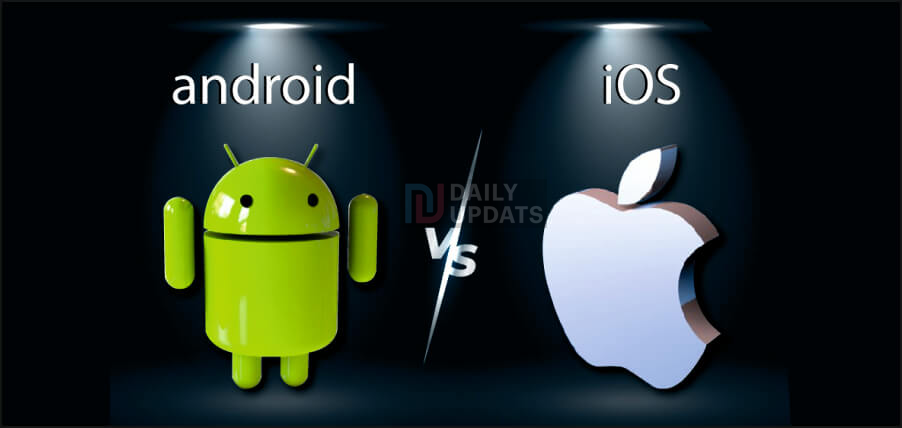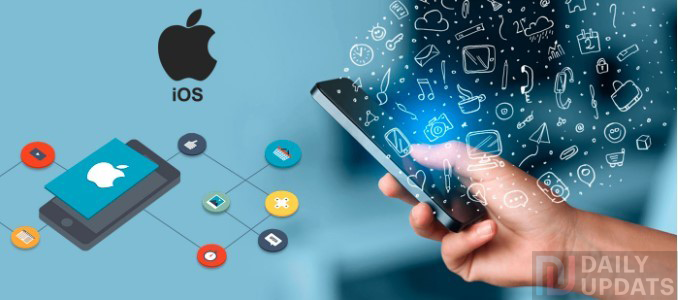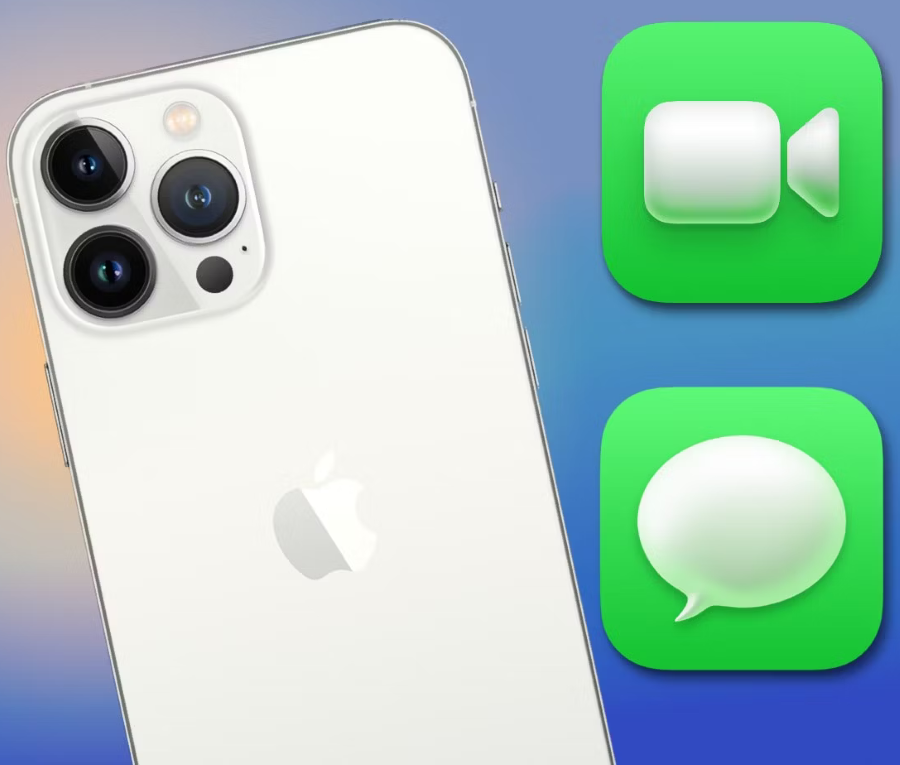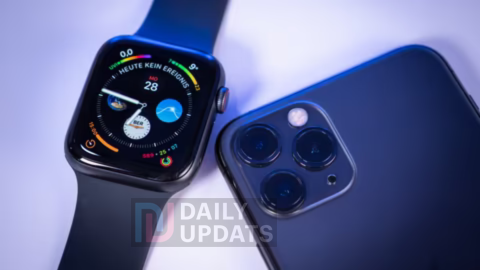Why is iOS Better than Android? Top 11 Factors

The war between iOS and Android has been going on for almost a decade, as both sides have ardent supporters who consider their respective operating systems to be the best. After this comes the turn of those people who still do not know why iOS is better than Android and are still using Android phones or are thinking of buying a new budget-friendly phone in 2024.
But we also know that when it comes to getting a new phone, choosing between these two mobile operating systems can be a daunting task, especially with the constant flow of new features and improvements. Now you must be wondering why we are saying that iOS is better than Android when now even Android has started getting better features than iOS.
Don’t worry, that’s why today we have come up with this article, here we will first talk about 11 such factors due to which you will know the reason why iOS is the best. After that, we will also see a comparison table in which we will give the comparison of both operating systems. Let’s start our tutorial.
Read Also: What is Android 12 Easter egg and How to Unlock it?
Compare Between IOS and Android
| Feature | IOS | Android |
|---|---|---|
| Performance | Smooth, responsive | Varies by device |
| App Quality | High, strict App Store policies | Lower barrier to entry, more bloatware |
| Updates | Prompt and consistent | Fragmented, slower rollout |
| Build Quality | Premium materials, durable | A wider range of options, but some budget models are lackluster |
| User Interface | Simple, intuitive | More customizable, can be overwhelming |
| Messaging & Video Calls | Superior within the Apple ecosystem | Alternatives are available, but less integrated |
| Resale Value | Holds value well | Depreciates faster |
| Privacy & Security | Strong focus on data protection | Improving, but concerns remain |
| Long-Term Support | After several years of updates | Varies by manufacturer and model |
| Apple Watch Integration | Seamless and powerful | Not applicable |
1. Seamless Integration and Ecosystem
As we all know, Apple’s integrated IOS ecosystem feels like magic. If I talk about myself, when I take a photo on the iPhone, it immediately pops up on my iPad and is ready for editing. On the other hand, continuing tasks between MacBook and phone is as easy as picking up the work I left on my hard copy.
But if I talk about Android, it is still progressing and still lacks that smooth flow. I remember trying to seamlessly transfer a document between an Android phone and a tablet, and it felt like wrestling a stubborn mule. This experience left me yearning for the seamless symphony of Apple’s iOS interconnected devices.
Read Also: Check Mac OS Version
2. Performance and Responsiveness
Remember that feeling of butter-smooth scrolling on your first iPhone years ago? This is Apple’s stronghold on both hardware and software at work. Even my old iPhone 6S still feels fast, with apps opening instantly and multitasking like a seasoned user.
Android, bless its open nature, maybe a different story. Performance can fluctuate wildly depending on the brand and its technical specifications. Sometimes it’s a rocket ship, and sometimes…well, let’s just say molasses comes to mind.

3. Unmatched App Quality and Security
Apple’s App Store might be a walled garden, but it’s a manicured one. The stricter gates mean you’re less likely to stumble into buggy messes or security nightmares. IOS Apps open smoothly, rarely hiccup, and feel generally polished.
Android, on the other hand, is a bustling open market, offering an overwhelming bounty of choices. But amidst the gems, you can also find landmines of bloatware and shoddy apps. It’s like sifting through a treasure trove with the occasional rotten banana lurking.
4. Frequent and Consistent Updates
Do you remember the thrill of opening your iPhone and finding a new bag of tricks waiting for you? This is Apple’s commitment to iOS updates at work. New iOS features arrive like clockwork, keeping your phone feeling fresh and protecting your digital life from the latest irritants.
Android, is blessed to have such an open heart that may have a different story. Updates occur very frequently and often get caught up in manufacturer customizations. It’s like waiting for a bus that might come tomorrow, or maybe next week, or… who knows?
Read Also: How to Upgrade Windows 10 to Windows 11?
5. Premium Build Quality and Design
Grab an iPhone and you’ll get it right away. The smooth curves, the cool glass against your palm, the reassuring weight of the stainless steel – it’s as if Apple has crafted a mini luxury item.
Sure, Android gives you more design options, from budget-friendly plastic to blinged-out flagships, but iPhones? They’re all built like tanks, aging gracefully without losing that premium feel. That’s why it is said that iOS is better than Android.
6. Intuitive and User-Friendly Interface
iOS is appreciated for its user-friendly interface. The interface is familiar, gestures feel natural, and everything is exactly where you expect it. There’s no need to fiddle with settings or get lost in menus – it’s all about getting the job done fast.
On the other hand, Android gadgets can be like stepping into a wonderland. From changing themes to creating your own widgets, you have endless customization options. It’s certainly powerful, but for a novice, it can feel like trying to fly a spaceship without any instructions.
7. iMessage and FaceTime
Apple’s proprietary messaging and video calling apps offer seamless integration with other Apple devices, providing a better experience for users within the ecosystem. For example, do you remember that seamless connection feeling when you text your bestie from Mac to iPhone because of the iOS operating system? These are messaging and video calling apps of iOS.
These apps aren’t just messaging, it’s a synchronized system across your devices, like a high-five between your iPad and MacBook. For this reason, OS is better than Android and always remains ahead in the race of operating systems.
But Android is no less, it also has a message app. But they’re like awkward handshakes — useless group chats, video calls that drop like bad Wi-Fi, and integration that feels like trying to square dance with a robot.

8. Strong Resale Value
iPhones retain their value remarkably due to their build quality, frequent updates, and brand reputation. This is thanks to their robust structure, updates that keep them fresh for years, and the Apple shine that never fades.
So, when upgrade time comes around, you’re not looking at a paperweight – you’re looking at a neat wad of cash waiting to finance your next tech adventure. Android phones depreciate very quickly if you’re on a budget, those things depreciate faster than any politician can promise.
9. Robust Privacy and Security
Apple takes data privacy and security seriously. Features like two-factor authentication, end-to-end encryption, and App Store content moderation contribute to a more secure user experience. While Android is making strides in privacy, Apple remains a leader in this area.
10. Long-Term Customer Support
Do you remember that iPhone you bought years ago? Apple still rolls out new features and security patches like confetti, keeping it fresh and protected even after you upgrade. It’s like a trusted old friend who is always there for you.
Android, not so much. Updates can be a big problem, especially for cheaper models. They might get a sprinkle here and there, but good luck expecting a full buffet. It’s like that acquaintance who promises to catch up but always misses the last moment.
11. Apple Watch Integrations
The Apple Watch: While not strictly about iOS, the Apple Watch seamlessly integrates with iPhones, enhancing the overall user experience. Fitness tracking, notifications, communication features, and third-party app integration make the Apple Watch a compelling companion, further strengthening the appeal of the iOS ecosystem.

Frequently Asked Questions
Ques: Does iOS cost more than Android does?
Ans: In general, flagship Android phones are less costly than flagship iPhones. For some consumers, Android is more cost-effective nonetheless, as it offers a greater selection of devices at different price points.
Ques: Is Android slower than iOS?
Ans: Performance on iOS devices might vary significantly depending on the model and software version, even though they typically seem snappy and responsive. In certain benchmarks, high-end Android phones may equal or even outperform iPhones. In the end, both systems provide enough performance for routine jobs.
Ques: Is the App Store more secure than Google Play?
Ans: Due to the strong app approval criteria in Apple’s App Store, there are fewer cases of viruses or low-quality programs. Google Play, on the other hand, has made great strides in security and now includes parental controls and app screening tools. Because of this with careful app selection and security policies, both platforms can be considered safe, but still, IOS is better than Android in terms of security.
Ques: Is it possible to utilize iMessage and FaceTime on an Android phone?
Ans: These features are unique to Apple devices and will not work natively on Android. Alternative texting and video chat applications are available for Android, but they lack the tight integration and functionality of iMessage and FaceTime within the Apple ecosystem.